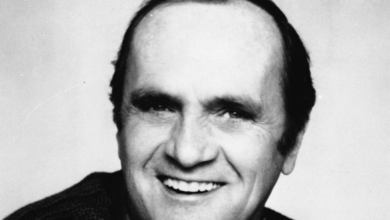Carrie Coon Loves Your Mean ‘Gilded Age’ Tweets

Bertha Russell did the damn thing. In The Gilded Age’s second season finale, Carrie Coon’s ruthless robber baroness emerged the victor in the great war between her beloved Metropolitan Opera and The Academy of Music, championed by old-money society queen Lina Astor (played by Donna Murphy). Even those casually acquainted with American history most likely had an inkling as to who would reign supreme—these days, the Met is arguably New York’s grandest cultural institution, while the Academy of Music has gone the way of the dodo. Still, the battle was thrilling all the same.
“The stakes come from not knowing what the cost will be to each individual person,” Coon says over Zoom. “Also, a lot of people in the audience don’t know any of this history. They don’t know there’s a Metropolitan Opera in New York. I mean, that’s stuff that I didn’t know growing up in Ohio. I didn’t know there were mansions in Newport people lived in for six weeks in the summer.” She laughs at the extravagance. “Bananas.”
What’s bananas is Coon’s ferocious performance as Mrs. Russell, loosely based on historical millionaire-wife and Anderson Cooper relative Alva Vanderbilt. In a cast absolutely stacked with theater luminaries —including Murphy, Christine Baranski and Audra McDonald—Coon still stands out, enough to land a spot on Vanity Fair’s list of the best performances of 2023. She credits the love of her character partially to Bertha’s relationship with her husband, Mr. Russell, played by Morgan Spector, which she cheekily calls “#couplegoals.”
“I think people have found themselves rooting for robber barons in spite of themselves on the show, partly because Julian [Fellowes] has written such a solid, cohesive, sexy marriage,” says Coon. “Even as they are ruthless in the world of business and in their social climbing, they are ultimately looking out for their children. Bertha can’t be a senator. She can’t be a CEO. She’s not the president of anything. This is her purview.”
Below, Coon goes deep on filming season two’s grand finale, Gilded Age: The Musical, and potentially saying goodbye to the series for good.
The season finale seemed to strongly imply that Bertha offered up her daughter, Gladys (Taissa Farmiga), as a sacrificial lamb to get the Duke in his seat. Did she promise Gladys’s hand in marriage just to get him to come to the Met?
It’s not explicit, but we know how George feels about it. And we’ve seen many, many times that Bertha has done something in spite of George’s counsel. I think we can absolutely assume Bertha would, in a heartbeat, trade Gladys for that status.
Now, Bertha doesn’t see herself as any kind of villain. Bertha is gifting the city of New York a brand new opera house with the best singers in the world, and an entertaining evening with a Duke. And they were all anglophiles. Everyone was obsessed with British status. It’s the reason Mrs. Astor had the families of the 400—all the rules were social constructs designed to catch people out so they wouldn’t get entree into this society. You had to really learn those rules before you could play the game.
Bertha is a quick study, and she’s also willing to call bullshit when she sees it. She believes that people should be able to earn their way in. She believes she’s earned her way in, and she believes that she’s living in a meritocracy. For her, that’s true. For people of color and the immigrants being crushed under the capitalist machine, that was not true—but she really in her heart believes that. I think that’s why the rise of Turner (Kelley Curran) is so interesting, because, given the same circumstances, I think Bertha is not sure she could have accomplished what Turner has accomplished. I think that’s very intimidating for her.
It was exciting to see the Russells fight about Mrs. Turner’s indiscretions earlier in the season. During their fight, we saw a rare crack in Mrs. Russell’s emotional armor.




